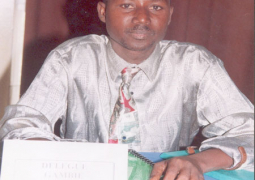Undoubtedly, there is a need to create an open society, where citizens would not live in the wilderness, but account those elected into office.
An open society can easily be made possible, when those in authority see the media as genuine partners in fostering democracy and good governance.
A vibrant and responsible media is the cornerstone for ensuring sustainable development and good governance, as it remains the most important, if not the only source of information, despite restrictions by those who want to silence it.
While it is a common knowledge that information on human rights violations are often obtained in the media, such information is increasingly recognised as one of the major drivers of the evolving global economy. Its availability will wipe out common rumour that is becoming popular in today’s Gambia than ever before.
It has often been said that information is power, without which decisions are untimely, irrational and misdirected. It also makes it possible to link producers and consumers to the markets and help citizens hold their governments accountable for their actions.
Availability of information enables the public to participate meaningfully in governance issues, promotes transparency and accountability in the management of national affairs.
If poverty reduction programmes are to succeed, information has to be availed to people at all levels in The Gambia in order to increase opportunities for wealth creation, as well as guarantee active participation in poverty reduction programmes.
In our view, this can only be possible when there is an open society for people to express their views, especially on issues affecting their lives.


